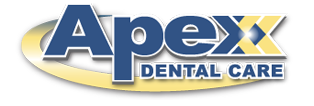Headaches play a significant factor in driving people to pursue treatment for Temporomandibular Disorder (TMD). There are two pathways along which different types of headaches will develop, and may be caused directly or indirectly by TMD.
The first or primary pathway is that of occluso-muscle pain. This is the direct pathway in which the pain is caused by hyperactive muscles (muscles that are contracting much more frequently and/or intensely than normal). The muscles that are affected by this process are the muscles of mastication that are used to bite, eat and chew. Headache pain of the muscle tension variety in these areas can be directly attributed to TMD.
These are the areas and muscles most commonly associated with muscle tension headaches due to bruxism.
There is also a frequent overlap in pain from previous neck injuries. Very commonly, a traumatic injury to the neck will also cause a direct but less obvious injury to the TMJ. As a result of this, we can see pain pattern distributions from neck injury and TMJ injuries that overlap, therefore making it difficult to assess what is actually causing the pain. These types of pain patterns are typically not due to muscle hyperactivity but are due to nerve damage instead. This neuralgic pain is very different in character from headache pain caused by bruxism (clenching and grinding teeth). We have methods of differentiating neck pain from TMJ pain.
The second true headache pain pathway is that of reactive pain. This is pain that is triggered secondarily (or tertiary) to a direct injury. Most commonly, what we’re really dealing with are migraine headaches. Migraines may not be specifically caused by a TMJ injury, but quite often are the result of a cascade of pain, triggered at the end of the pathway.
Dr. Nicols of Apexx Family Dental Care in Littleton, CO specializes in the diagnosis and treatment of occlusion and TMJ Disorder problems. If you suffer from persistent headaches and believe a TMJ disorder may be the cause, request an appointment with our dental clinic today.
Contact Apexx Family Dental Care – serving Littleton, Colorado.


